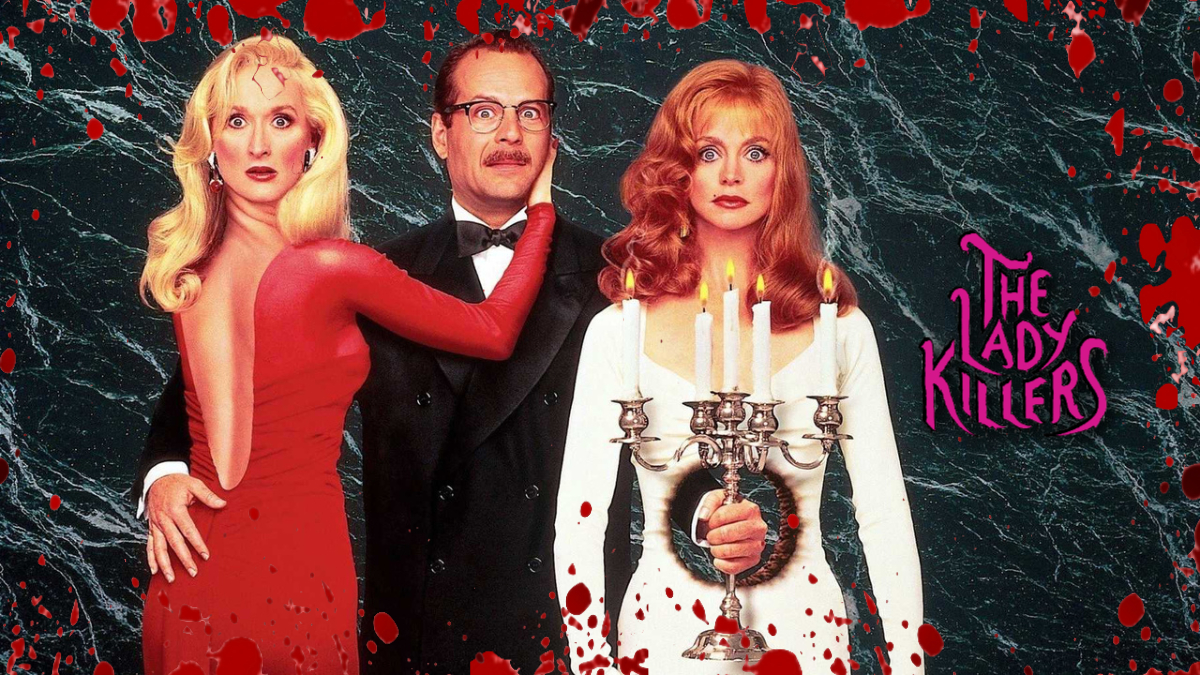Podcasts
[Horror Queers Podcast] Cults, VPL and Famke in Clive Barker’s ‘Lord of Illusions’

The Third Eye is the Butthole of the Face.
After kicking off Pride Month with a double feature of the first (Hellbent) and latest (Killer Unicorn) gay slasher films, we’re marching on with an analysis of Clive Barker‘s 1995 cult classic Lord of Illusions, which was adapted from his own short story “The Last Illusion” in his Books of Blood.
In the film, private eye Harry D’Amour (Scott Bakula) travels to Los Angeles and meets with a new client, Dorothea Swann (Famke Janssen). Swann reveals that she and her husband — famed magician Philip Swann (Kevin J. O’Connor) — have been targeted by a religious cult experimenting with reincarnation. After Philip dies on stage in the midst of a dangerous trick, D’Amour must struggle to protect Dorothea from the ruthless cult members and their newly reanimated religious leader, Nix (Daniel Von Bargen).
Be sure to subscribe to the podcast to get a new episode every Wednesday. You can subscribe on iTunes/Apple Podcasts, Stitcher, Spotify, iHeartRadio, SoundCloud, TuneIn, Acast, Google Play, and RSS.
Episode 77 – Lord of Illusions (1995)
Continuing our Pride Month marathon, we’re checking in with Clive Barker’s third (and final directorial effort Lord of Illusions, which features the first (and only) live-action appearance of Barker’s recurring protagonist Harry D’Amour (Scott Bakula).
Topics up for discussion include: forehead buttholes, studio interference leading to a Director’s Cut, mid-’90s special effects, magic vs. illusion and queer henchman Butterfield’s Visible Penis Line.
Also, Trace lauds everything cult-related in the film, but struggles with all of the noir elements. Joe gushes over all things Famke Janssen. And both of us praise Barker for the unapologetic queerness that he injects into so much of his work, paving the way for queer horror outlets like us.
Cross out Lord of Illusions!
Coming up on Wednesday: We’re going back to the ’80s to check out a film with….positive queer representation? That’s right, it’s Butcher, Baker, Nightmare Maker (aka Night Warning)!
– Joe & Trace
P.S. Check out last month’s article on 1986’s extremely upsetting In a Glass Cage. You can find all of the old articles here.
P.P.S. If you subscribe to our Patreon you can listen to bonus episodes! Since every new horror release has been delayed, we decided to go with a creature feature theme this month, so you can listen to full-length episodes on Deep Rising and Arachnophobia, as well as an audio commentary on Snakes on a Plane!

Podcasts
‘Death Becomes Her’ and the Horror of Aging [The Lady Killers Podcast]

“This is life’s ultimate cruelty. It offers us a taste of youth and vitality, and then it makes us witness our own decay.”
Is there anything more terrifying than the relentless passage of time? It’s a bitter truth that just when we’ve become accustomed to our bodies, the sands of time turn and we’re forced to watch them slowly break down in a cruel march towards inevitable death. But what if there were a way to stop the aging process – a potion that would return us to our peak physical condition and hold us there until the end of time? Would we take it? And would we eventually find that the blessing of perpetual life is actually a curse? No film explores this dilemma quite like Death Becomes Her. Robert Zemeckis’ 1992 horror comedy pits two showstopping divas against each other for a single spotlight while asking what they would do for eternal youth – and what will be the hidden cost?
Madeline (Meryl Streep) and Helen (Goldie Hawn) are old frenemies with a history of vicious competition. Madeline seems to have won the most recent battle and married Helen’s fiance Ernest (Bruce Willis), but decades later, their marriage is on the rocks and Madeline’s once thriving career is now a thing of the past. When Helen returns with a stunning new look, Madeline turns to unorthodox methods to maintain her feminine dominance. She drinks a potion designed to give her eternal youth, but returns home to find her life turned upside down by her downtrodden husband and jealous “friend.” Having both taken the potion, “Mad” and “Hel” engage in a bitter fight to the death over years of petty snipes and the right to claim the title of Most Desirable Woman.
In their latest episode, The Lady Killers dissect these two glamorous killers and the hidden social commentary in Zemeckis’ iconic film. Co-hosts Jenn Adams, Mae Shults, Rocco T. Thompson, and Sammie Kuykendall dish over their own fears of aging, choose their favorite diva, and decide whether they would take the potion should they ever find themselves in Lisle’s (Isabella Rossellini) lavish home. How does the film hit differently when watching as an adult? Could Madeline, Helen, and Ernest ever make a polycule work? Is Lisle a hero or a villain and how does she keep that gorgeous necklace in place? They’ll wrestle with these questions and more in a podcasting shovel battle to the death on this unique horror comedy and one of the most glamorous casts of all time.
Stream below and subscribe now via Apple Podcasts and Spotify for future episodes that drop every Thursday.












